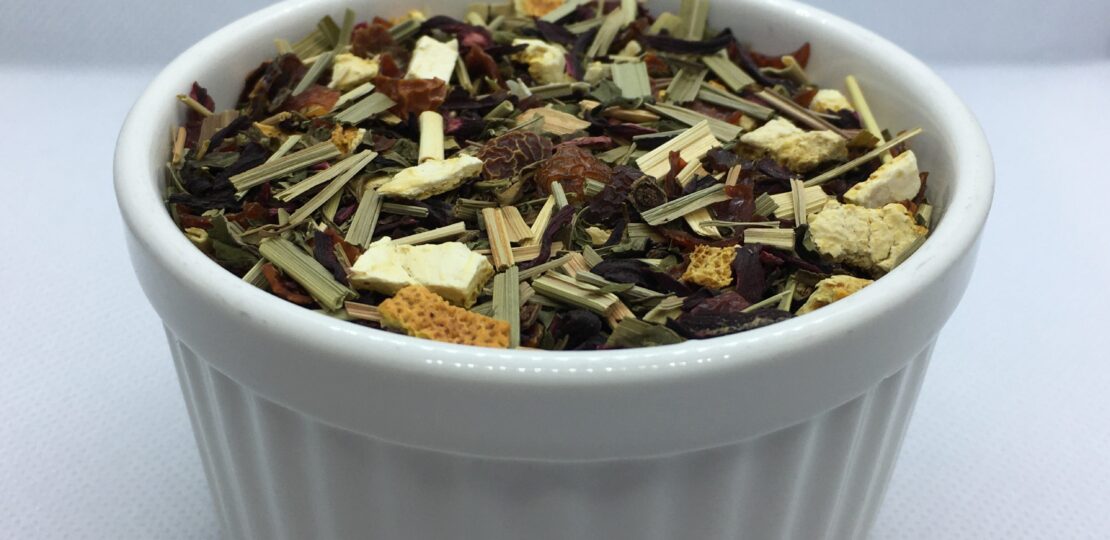Tranquil Sips: Your Complete Guide to the Benefits and Varieties of Caffeine Free Herbal Tea
October 28, 2025 | by IoT Development Company

In a world running on coffee, energy drinks, and black tea, the quest for tranquility often leads us to seek healthier, less stimulating alternatives. Enter the peaceful and diverse realm of caffeine free herbal tea. Far from being a mere hot beverage, these infusions—known scientifically as tisanes—are crafted from dried fruits, flowers, spices, and herbs, offering a potent blend of flavor, aroma, and wellness benefits without the jolt and eventual crash of caffeine.
Whether you’re looking to improve your sleep quality, soothe an upset stomach, or simply enjoy a delicious, warm drink in the evening, switching to a Caffeine Free Herbal Tea can be a simple, impactful change in your daily routine.
Why Choose Caffeine Free Herbal Tea Over Traditional Beverages?
The primary distinction between true teas (black, green, white, oolong) and herbal teas is the absence of the Camellia sinensis plant, which naturally contains caffeine. This absence provides significant advantages, especially for individuals sensitive to stimulants or those seeking specific health outcomes.
Supporting Rest and Relaxation
Caffeine is a central nervous system stimulant, and regular consumption, particularly later in the day, can interfere with the body’s natural sleep cycle.
Creating a Calming Evening Ritual
By eliminating caffeine, herbal teas allow the body to wind down naturally. Many varieties, like chamomile and valerian root, contain calming compounds that interact with the nervous system to promote relaxation and prepare the body for restorative sleep. Establishing an evening ritual with a warm, soothing caffeine free herbal tea can signal to your brain that it’s time to rest.
Hydration and Mineral Intake
While plain water is the gold standard for hydration, herbal teas contribute to your daily fluid intake in a flavorful way, often carrying beneficial vitamins and minerals.
Gentle on the Digestive System
Unlike coffee and some black teas, which can be highly acidic and sometimes irritating to the stomach lining, herbal teas are generally alkaline and much gentler. Varieties like peppermint and ginger are specifically known for their carminative properties, which help ease digestive discomfort, bloating, and nausea.
Popular Varieties of Caffeine Free Herbal Tea and Their Benefits
The world of herbal tea is vast and offers a specialized remedy or flavor profile for almost any need. Exploring the unique characteristics of each type can help you find your perfect daily cup.
Herbal Heroes for Wellness
These widely celebrated herbal teas are known for their distinct flavors and powerful, science-backed benefits.
Chamomile (Matricaria recutita)
Perhaps the most famous sleep aid in the tea world, chamomile is known for its light, apple-like flavor and delicate aroma. Its primary benefit comes from the antioxidant apigenin, which is believed to bind to receptors in the brain that promote sleepiness and reduce anxiety. It is often recommended for those struggling with mild insomnia or general stress.
Peppermint (Mentha piperita)
A refreshing, invigorating tea that is best known for its digestive benefits. The essential oils in peppermint, particularly menthol, can relax the muscles of the gastrointestinal tract, which makes it highly effective at easing irritable bowel syndrome (IBS) symptoms, bloating, and indigestion. It’s a perfect post-meal beverage.
Ginger (Zingiber officinale)
Used for centuries in traditional medicine, ginger tea delivers a spicy, warming kick. Its active compound, gingerol, is a potent anti-inflammatory and is widely effective at combating nausea, motion sickness, and digestive upset. It is also great for warming the body and boosting circulation.
Root and Leaf Powerhouses
Beyond the common herbal choices, several root and leaf-based tisanes offer deep, earthy flavors and robust health advantages.
Rooibos (Aspalathus linearis)
Hailing exclusively from South Africa, Rooibos (or Red Bush tea) has a rich, slightly sweet, and nutty flavor that makes it an excellent, caffeine-free substitute for black tea. It is packed with antioxidants and is often credited with supporting heart health and possessing anti-inflammatory properties. Because of its mild taste, it can be enjoyed with milk and sugar like a traditional tea.
Hibiscus (Hibiscus sabdariffa)
This vibrant, ruby-red tea is made from the dried calyx of the hibiscus flower, offering a tart, cranberry-like flavor. High in antioxidants, hibiscus is particularly noted in studies for its potential role in lowering blood pressure and supporting overall cardiovascular health. It’s delicious both hot and iced.
Lemon Balm (Melissa officinalis)
A gentle herb from the mint family, lemon balm has a light, citrusy flavor. It is a traditional remedy for mood and cognitive function, often used to help ease anxiety and improve focus. It’s an ideal choice for a gentle uplift without the nervous energy of caffeine.
Incorporating Caffeine Free Herbal Tea Into Your Lifestyle
Making the switch to herbal tea doesn’t have to be a drastic overhaul; it can be an easy, enjoyable substitution that enhances specific moments of your day.
Replacing Caffeinated Beverages
Strategic timing is key when transitioning from caffeinated to herbal drinks.
The Afternoon and Evening Switch
If you rely on coffee in the morning, try replacing your afternoon cup—which often causes the jitters and compromises evening sleep—with a cup of peppermint or ginger tea. By 5 PM, switch entirely to a calming variety like chamomile or valerian root to signal to your body that it’s time to slow down.
Optimal Brewing and Quality Selection
To reap the maximum benefits, ensure you are brewing your herbal teas correctly and choosing high-quality sources.
Water Temperature and Steeping Time
Unlike green tea, which requires cooler water, most herbal teas benefit from being steeped in boiling water (212°F or 100°C) to fully extract their beneficial oils and flavors. They also require a longer steep time than traditional teas, typically 5 to 10 minutes, to achieve maximum potency.
Prioritizing Quality and Sourcing
Look for loose-leaf teas or tea bags from reputable suppliers who prioritize organic sourcing. High-quality herbal teas will contain whole pieces of herbs, flowers, or roots, which yield richer flavor and more potent compounds compared to the dust found in lower-quality bags.
Conclusion
The decision to embrace caffeine free herbal tea is a choice to prioritize wellness, rest, and natural balance in your life. By trading the synthetic energy of stimulants for the gentle, time-tested power of nature’s herbs, flowers, and roots, you gain more than just a delicious drink. You gain a powerful tool for supporting digestion, improving sleep quality, and creating moments of calm throughout your busy day. Start exploring the fragrant, flavorful world of tisanes today and discover the profound power in a single, tranquil sip.
RELATED POSTS
View all



